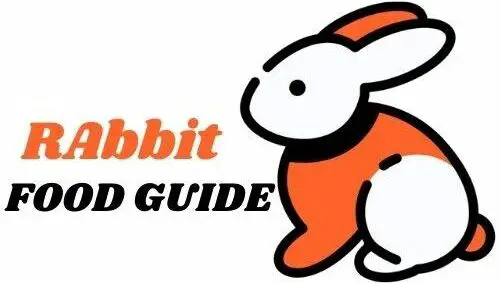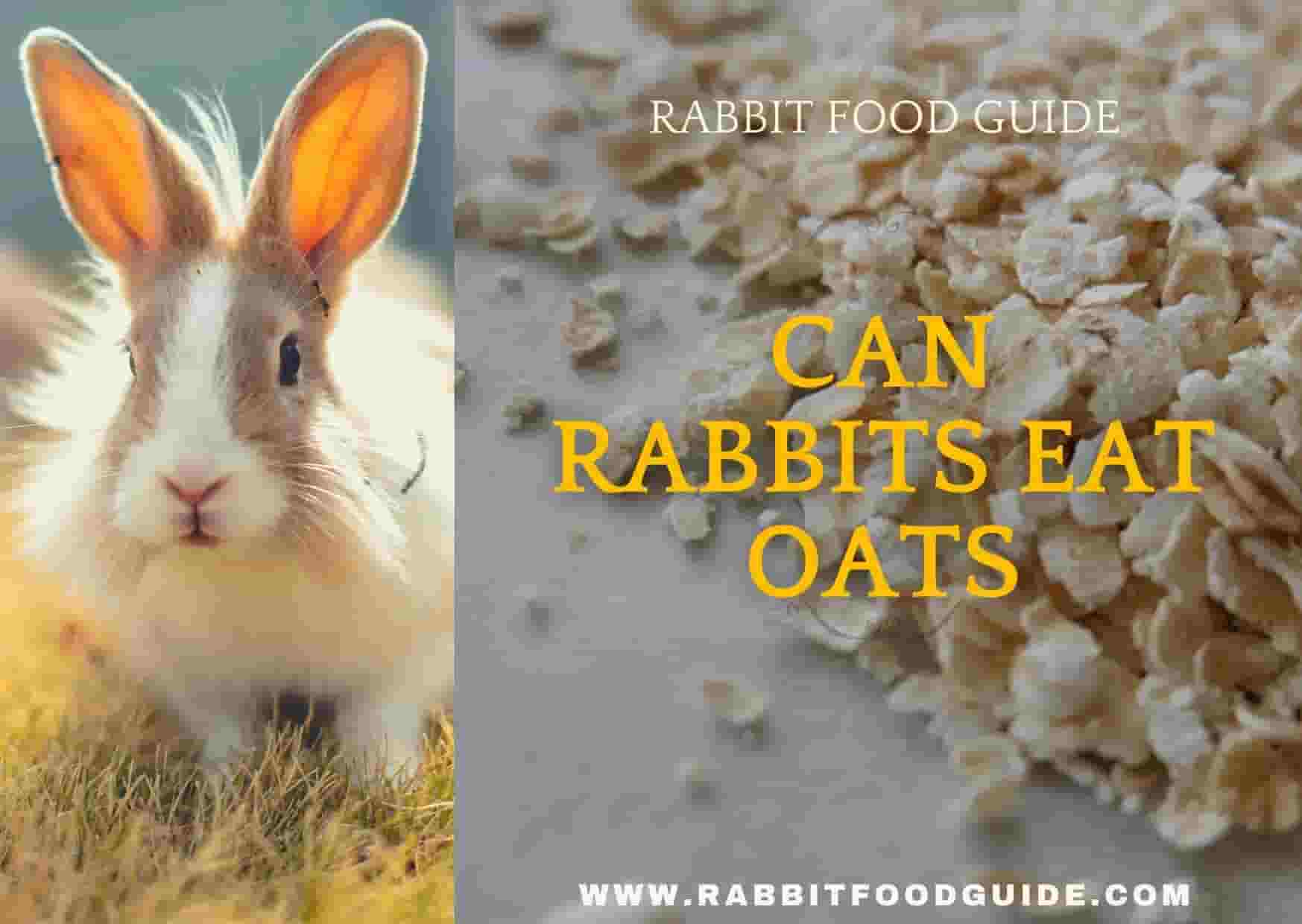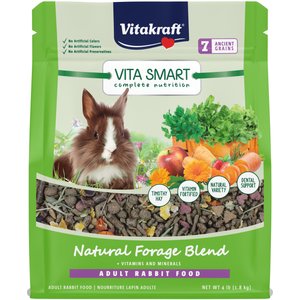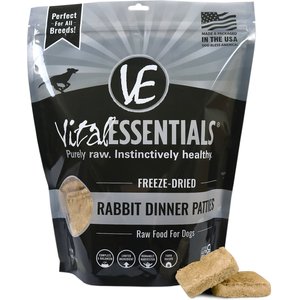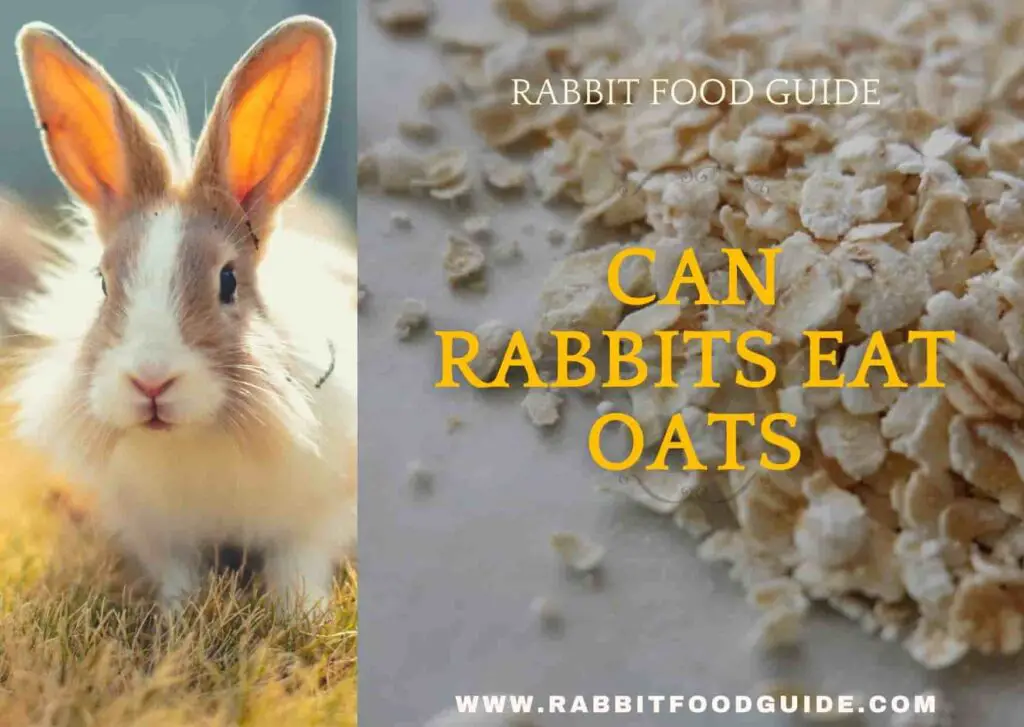
Table of Contents
Can Rabbits Eat Oats?
Can rabbits eat oats? YES. We can serve a small amount of Oats and Oatmeal to rabbits safely, but we need to keep the moderation. We can’t categorize Oats as a healthy nutritious food for rabbits. There are no toxic parts in Oats or Oatmeal. Oats contain a high amount of complex carbohydrates, nutrients, proteins, and fiber. Nowadays we can see many types of Oats in the markets. All of them might be good for humans but most of them are unhealthy for rabbits.
Rabbits can eat oats but that doesn’t mean they must eat oats. Oats and Oatmeal are rich in complex carbohydrates, it can lead to many health issues if we overfeed them. Rabbits’ major food source must be hay. Supply a small number of vegetables and fruits for their daily vitamins & mineral intake. We can add a small amount of oats as an occasional treat for your rabbit’s healthy diet and always keep moderation. There is a lot to talk about Oats and Oatmeal and rabbits. This guide helps you to cover all the necessary information you need to know about Oats and Oatmeal before feeding your rabbits.
Let’s start without any delay!!!
Extra Information About Oats
Oats are scientifically known as Acenasatica. They are whole grain food. Nowadays we commonly use oats as a breakfast meal. For food use, oats are milled, steamed, heated, and cooled in a kiln, which brings out the flavor. Oats are then rolled, cut, or ground to produce flakes, oatmeal, or flour.
Oat and Oatmeal have many health benefits,
- Lowers blood sugar levels
- Provides antioxidants
- Promotes healthy bacteria in the gut
- Helps you to feel full to manage weight
- Ease constipation
- Relieves skin itching and irritation
- Lowers chance of colon cancer
According to the US Department of Agriculture(USDA), 100g of Oats contain these nutrients
| Energy | 1,628 kJ (389 kcal) |
| Carbohydrates | 66.3 g |
| Dietary fiber | 11.6 g |
| Fat | 6.9 g |
| Protein | 16.9 g |
| soluble fiber | 4 g |
Vitamins and Minerals
| Thiamine (B1) | 0.763 mg |
| Riboflavin (B2) | 0.139 mg |
| Niacin (B3) | 0.961 mg |
| Pantothenic acid (B5) | 1.349 mg |
| Vitamin B6 | 0.12 mg |
| Folate (B9) | 56 μg |
| Calcium | 54 mg |
| Iron | 5 mg |
| Magnesium | 177 mg |
| Potassium | 429 mg |
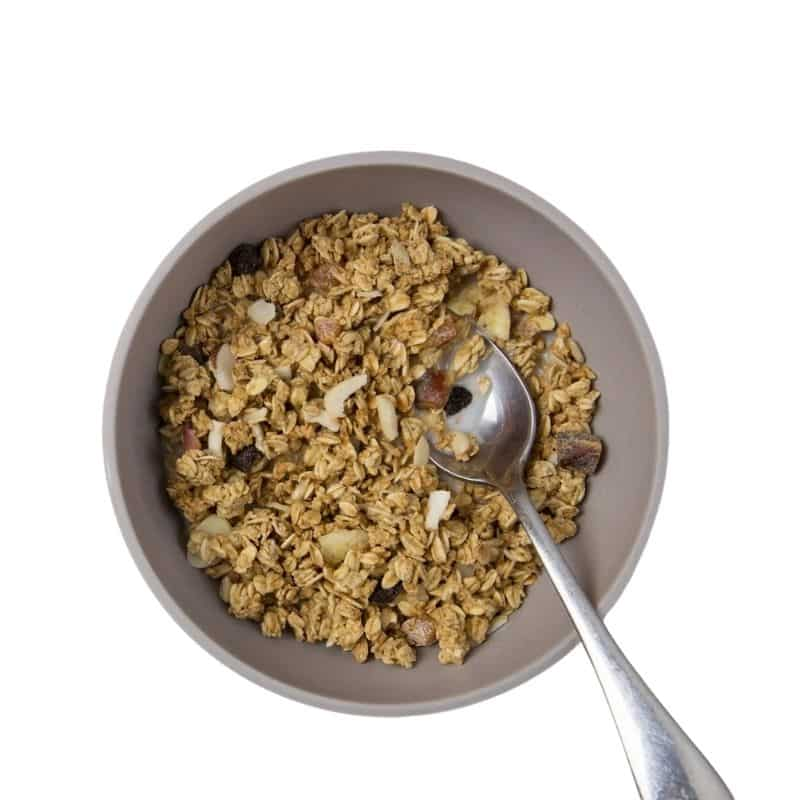
GET MORE INFORMATION ABOUT: RABBITS & CELERY
Do Rabbits Like To Eat Oats?
Why not, they will definitely eat those if you give them Oats. They can’t understand whether it is healthy food or not. Even if they like to eat oats, we can’t feed them more often. Don’t ever try to overfeed them. It can cause health problems in rabbits. If you want to feed Oats for rabbits, give them a small amount and always maintain the health and fitness in rabbits.
We need to care for rabbits always more than other pets. Unlike dogs and cats, rabbits need more attention to their health and diet.
Is Oats Good For Rabbits?
If we concern about rabbits’ health, oat is not good food for rabbits’ health. It contains high carbs and sugar. We can only give them Oats only as a treat. There is always the risk of feeding oats for rabbits. If we feed food like Oats, large amounts of carbs can lead to diarrhea and weight gain in your rabbits. Feed your rabbit a limited amount of oats and make sure not to add to your rabbit’s diet more often.
Rabbits’ main source should be hay. We should prioritize hay in the regular diet plan. Overall nutrition can be covered by hay. Unlike humans, fiber is essential for rabbits. It can prevent bad bacteria from forming in the intestines. Some of the bacteria can lead to critical health issues in rabbits. This is why we should give priority to hay.
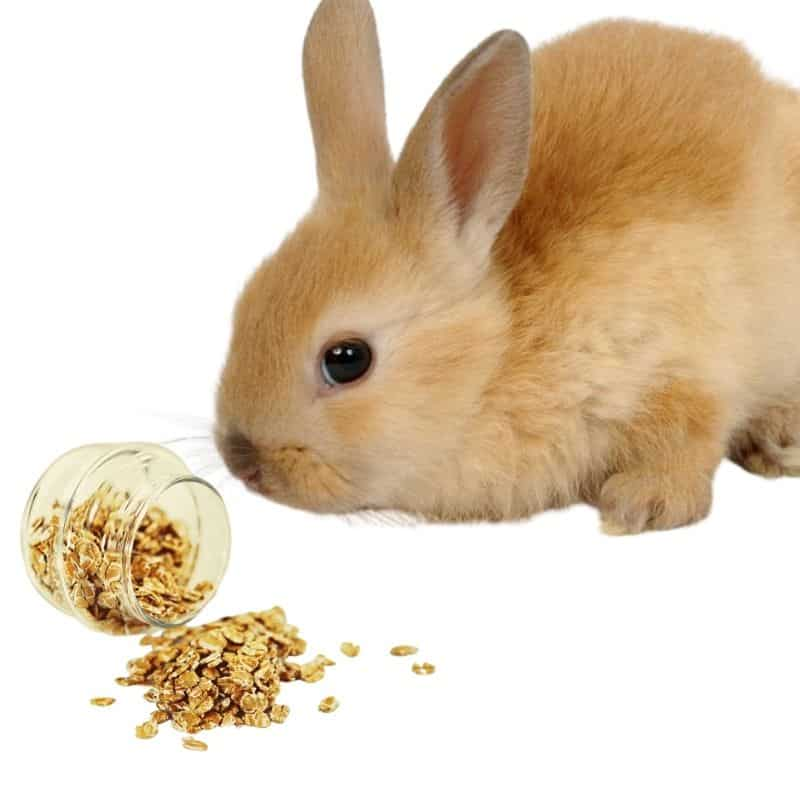
How Often Can Rabbits Eat Oats
We can only feed oats to rabbits, according to a proper guide. Overfeeding can cause many health problems in your pet.
We can only feed oats once in a while only in little amounts. Only provide 1 teaspoon per 2 pounds of your rabbit’s weight. Oats and oatmeal offer no nutritional benefits to rabbits. It’s much better if we can avoid feeding these things to rabbits.
Risk Of Feeding Oats to Rabbits
Oats contain high carbs and sugar. Overfeeding them can lead to many health problems in rabbits.
- GI Stasis
- Enteritis
- Diarrhea
- Bloat
Due to high complex carbohydrate content, most of the time rabbit’s digestive systems are unable to handle and digest oats. These issues can cause enteritis. And if we overfeed oats to rabbits, it can lead to gut motility and GI stasis.
If your rabbit is overweight, never feed oats, not even in small amounts. Overfeeding these things can divinely increase the weight of your rabbit and it can affect the physical performance of your rabbit.
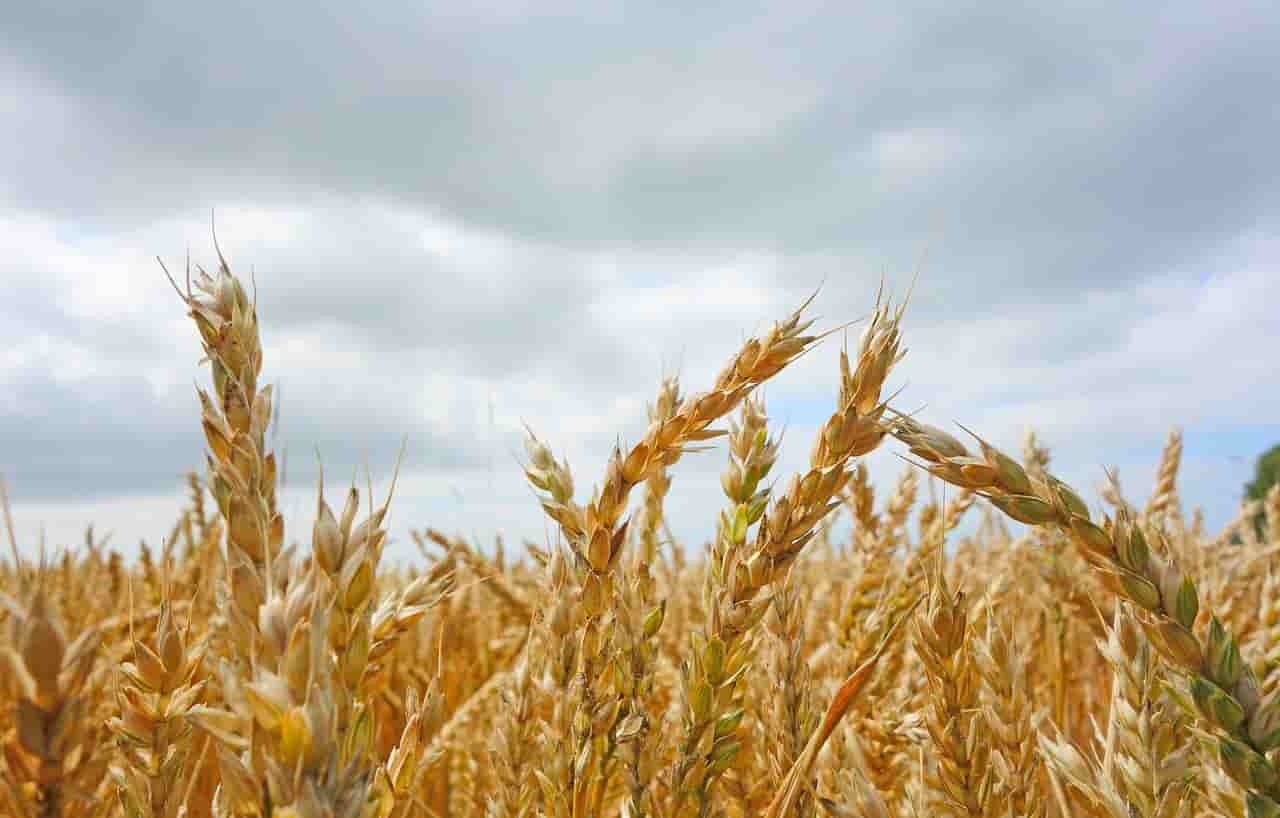
Other Good Foods You Can Provide To Rabbits
Rabbit’s diet should mainly be covered with quality hay and grass. In addition, we can provide a small portion of vegetables and fruits. We recommend giving two cups of fresh vegetables to adult rabbits daily.
- Bell peppers
- Bok choy
- Brussels sprouts
- Basil
- Cilantro
- Endive
- Green leaf
- Red leaf
- Parsley
- Fennel
Fresh fruits should be served one or two times per week as a treat.
- Grapes
- Banana
- Berries
- Melon
- Peach
- Pear
- Plum
- Watermelon
- Papaya
- Pineapple
- Orange
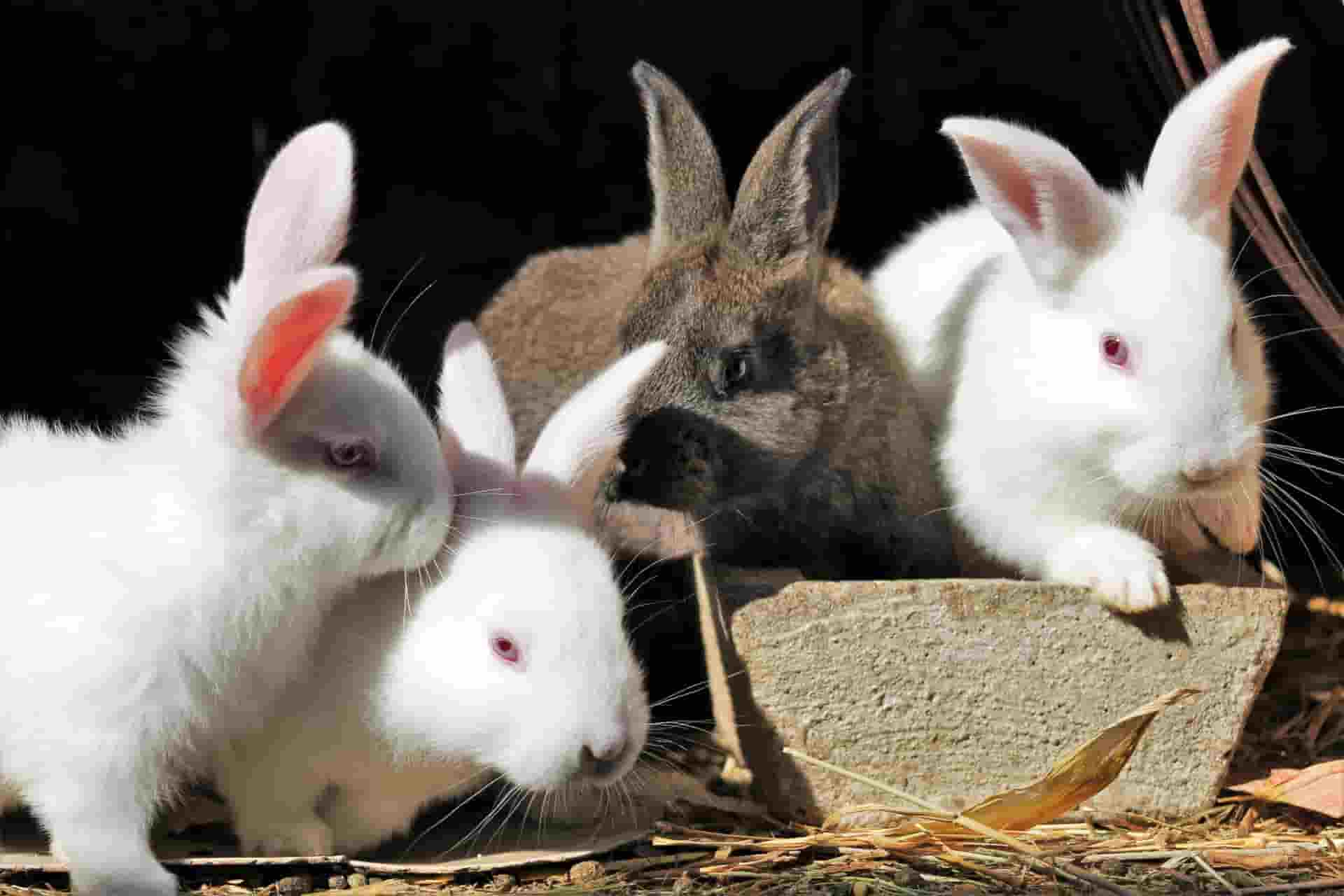
Best Way To Feed Your Rabbit
We need to make a good meal plan for rabbits. We need to provide them with good quality food. Before feeding rabbits with new food, check whether it’s good for rabbits. As a good Rabbit owner, check whether you cover all the guidelines mentioned below. It’s a general food guide for rabbits.
- Good Quality Grass Hay -I recommend Timothy hay is the most popular/good, all-around unlimited offer to your rabbits. Orchardgrass, meadow fescues are also good for rabbits. Hay is the main food supply. Hay will help your rabbits to stay healthy and strong and maintain a healthy digestive system.
- Fresh Water – Ensure rabbits can have clean, freshwater 24/7. Water bows are most commonly used to supply water for rabbits.
- Provide Good Quality Leafy Greens – Provide them with 5-6 varieties of safe washed green vegetables, weeds, herbs daily (arugula, basil, kale, cabbage, etc.). Try to introduce new greens in small portions.
- Treats & Fresh Fruits – For the safety of rabbits, only provide 1 -2 tablespoons per day. Feed carrots, apples, blueberries, etc.
- Provide Good Quality Pellets – It is good to have a small number of healthy pellets daily. There are too many products out there, keep it in your mind to supply quality and healthy foods for rabbits.
Summery
If we concerned about rabbits’ health, oats are not good food for rabbits’ health. It contains high carbs and sugar. We can only give them Oats only as a treat.
Overfeeding can cause many health problems in your pet. We can only feed oats once in a while only a little amount. Only provide 1 teaspoon per 2 pounds of your rabbit’s weight. Oats and oatmeal offer no nutritional benefits for rabbits. It’s much better if we can avoid feeding these things to rabbits.
Thank you!!!
